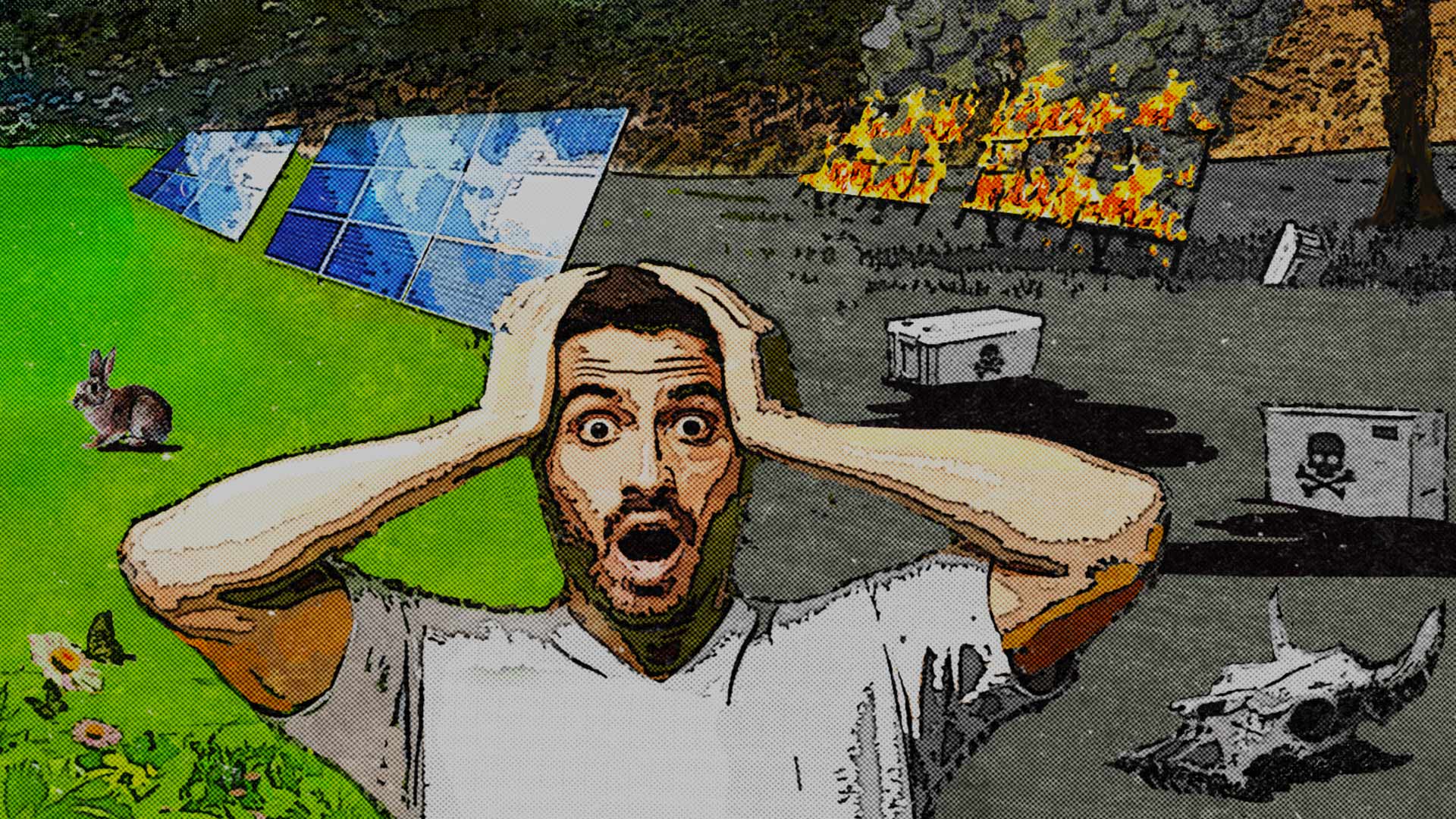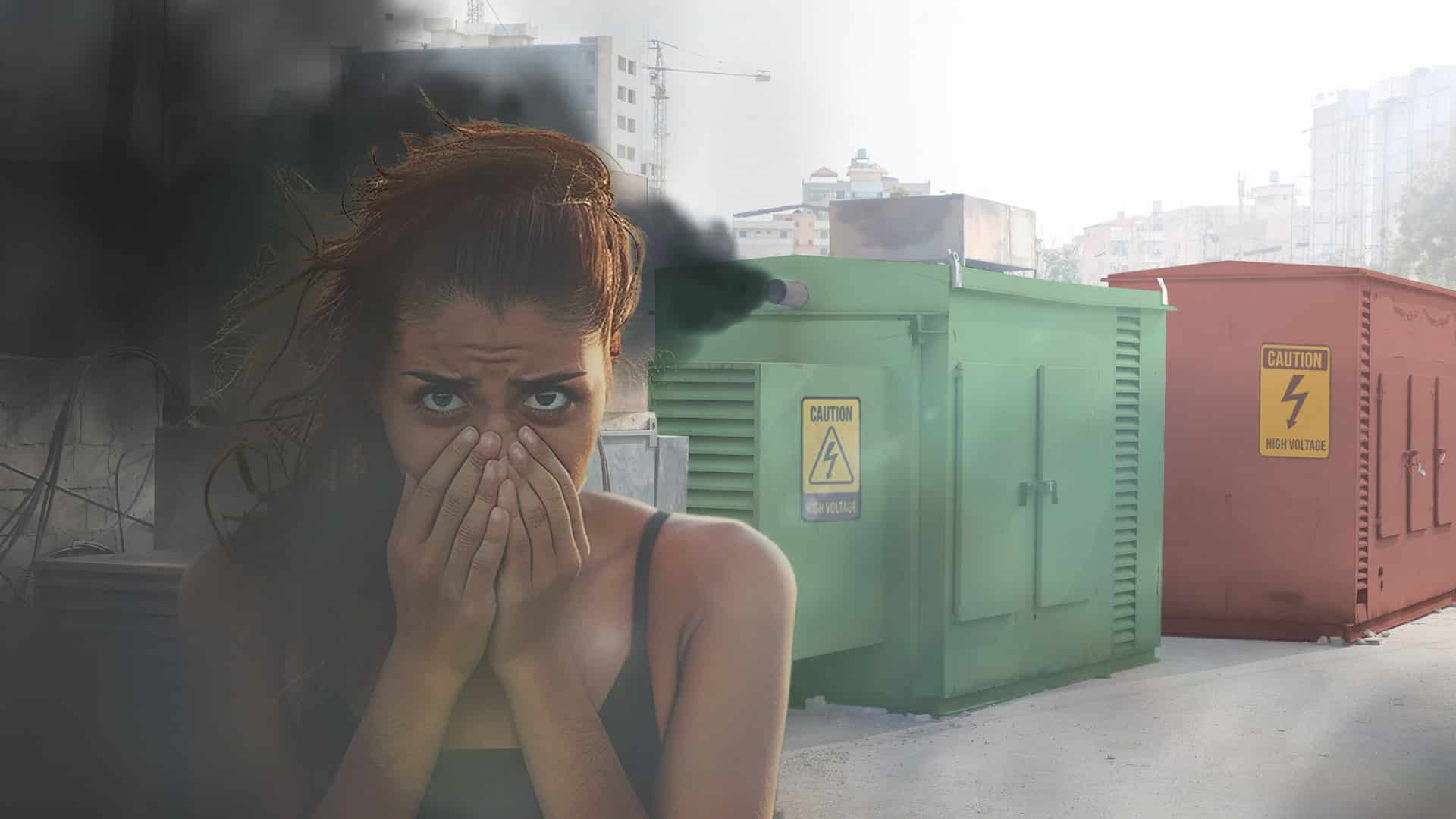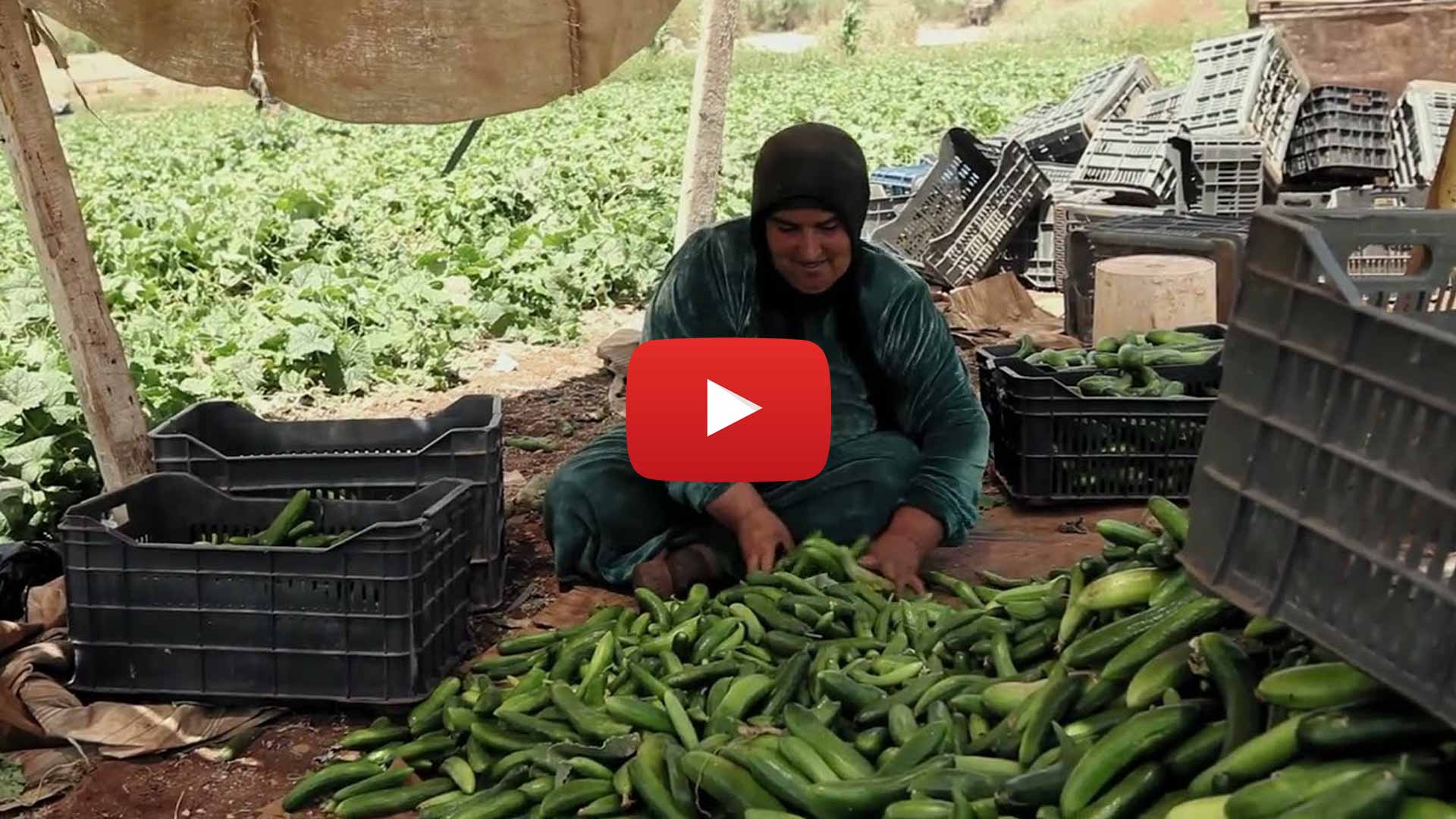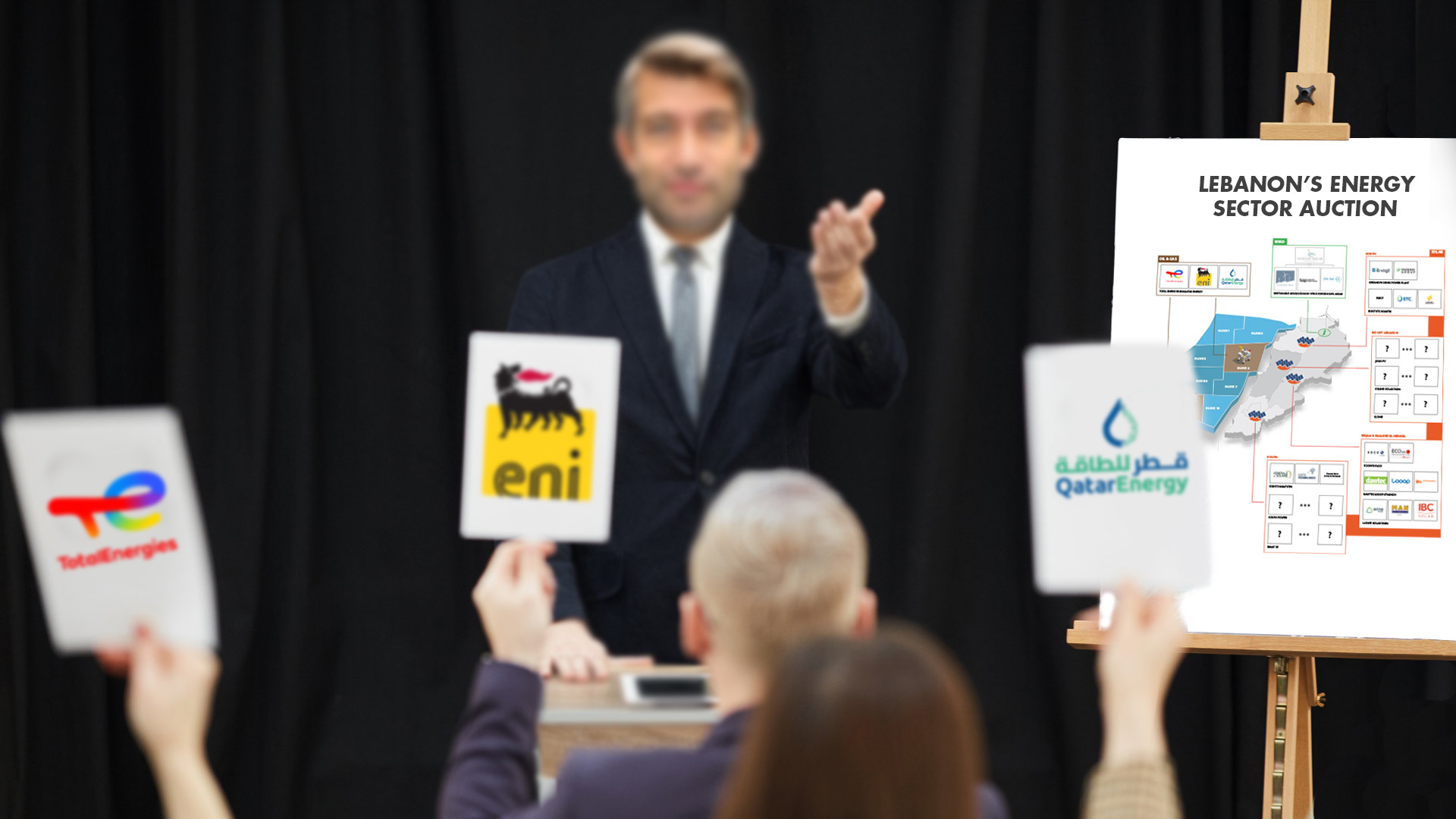As the Lebanese state struggles to provide more than an hour of electricity a day, numerous people have installed solar panels on their roofs to cope with power cuts and blackouts. The shift to renewable photovoltaic (PV) energy will have many environmentalists amped up, yet experts warn of safety concerns and a looming environmental disaster.
Of late, there have been reports of fires and battery explosions due to faulty solar system installations. Most recently, a fire erupted on a residential rooftop in the town of Bchamoun.[1] In addition, batteries and solar panels contain toxic substances and heavy metals, which could leech into soil and groundwater if not disposed of properly.
Cutting Corners
“Lebanon is a dumpster for low quality solar PV products due to a lack of awareness and regulation,” said energy policy consultant Jessica Obeid. “Solar panels in Lebanon are often not admissible in other countries, as they don’t meet quality standards.”
Demand for solar systems skyrocketed when the government abruptly lifted state subsidies on diesel, used by private power generators, of which most of the country relies on for electricity. In the scramble to meet the rise in solar demand, newly gilded experts and technicians have hit the market.
“Everyone started transitioning to solar,” said Obeid. “Your neighborhood supermarket might be selling solar panels. This comes with little capacity building, while many of these systems do not meet minimum safety standards.”
There are two main factors affecting the safety of solar panel systems: improper hardware and improper installation.
Improper hardware concerns the use of low-quality materials in batteries and inverters. There is a wide range of products and prices on the market. Yet most end-users only compare prices and choose the cheapest option without really knowing what they are buying. According to Obeid, installing a 5 Ampere solar panel system can cost anything between US$2,000 and US$7,000.
“You can buy the best solar panels, inverters, and batteries on the market,” said Jil Amine, an electrical engineer and renewable energy expert. “But if you don’t configure and program them well, the system will eventually fail.”
Improper installation is due to a lack of technical expertise. Ironically, many of the recent solar system fires were due to the fact there is more sun in summer. Too much sunshine in improperly calibrated PV systems can lead to excess voltage and fire.
“We’re seeing a lot of systems where the limit is, say, 10 panels, yet some technicians are installing 12 because they don’t know about this limitation,” said Amine. High voltage can overload even the best inverters on the market, causing electrical fires and even explosions. In winter flawed structures may not be able to withstand high winds.
Solar systems may also fail because of the type of batteries used. Low-cost lead-acid batteries are not built for the heavy charge and discharge cycles that come with solar panel systems.
While such batteries may be the best short-term solution to the debilitating lack of electricity, they have a short lifespan. Because of the heavy beating they take from the charging cycle, their life span will be greatly reduced leading to a looming hazardous waste crisis.
Truckloads of Waste
With 300 days of sunshine a year, Lebanon has prime conditions for the use of solar energy. However, if solar panels are to become key in meeting the country’s future electricity needs, they must come to terms with proper modes of waste disposal.
Solar panels and batteries contain heavy metals such as lead, silver, cadmium, and selenium, which are classified as hazardous. As such, they require landfill disposal with extra safeguards against leaching to avoid soil and groundwater contamination. Better still: they require a recycling program to recover valuable materials. Lebanon has neither.
The country’s solid waste sector is already struggling to deal with residential and industrial waste. Formal landfills are overflowing and the country is littered with informal dumps – with 29% of waste is being disposed of informally. [2]
Normally, disposal or recycling of PV technology only becomes a problem many years down the line. A lithium battery can last up to 10 years while solar panels are given a 30-year life-span, but can function longer than that.
However Lebanon’s PV waste crisis lies just around the corner, given the use of lead-acid batteries, the improper installation of solar panels, and even celebratory gunfire – residents of the Bekaa Valley have reported damage to their rooftop panels after joyous outbursts of bullets. [3]
“Different batteries have different specifications,” said Obeid. “Acid and gel batteries have a much shorter lifespan than lithium. These will last for only a few months or years. Then you end up with the waste.”
Shadow of A Doubt
There is a risk that people will lose trust in solar PV technology, due to the use of wrong materials or faulty installations. But, at US $0.06 per kilowatt hour (kw/h) compared to some US $0.44 per kw/h when generated by private diesel generators, it remains the cheapest source of power over the long-term.[4], [5] If done properly, solar energy has a great future in Lebanon.
People who wish to install solar systems can use the Lebanese Centre for Energy Conservation’s list of qualified companies. As of August 2022, it only featured three companies in Beirut. [6]
According to Amine, there is a quality standard for the import of solar PV materials. Customs agents can have any incoming PV equipment tested by the Lebanese Industrial Research Institute (LIRI) to ensure they meet the required standards. However, it is unclear how often these tests are actually done.
As it stands, there is no required certification process for solar PV companies operating in Lebanon. Nor is there a regulatory authority to certify solar energy systems before putting them to use.
In other countries solar system companies must be certified and have a license to operate. Lebanon requires neither.
Lebanon’s end users cannot be expected to understand the complexities of electrical engineering and with no functioning state, consumer protections or sector regulations in place they may be in for a shock.
Draft Law
If Lebanon had a reliable, functioning power grid, residents would not have to worry about storing electricity. They could even sell excess electricity back to the national power company Electricite du Liban.
The latter even has a mechanism for net metering: selling excess electricity back into the grid, However, according to UNDP Energy Program Manager Hassan Harajli, the number of net-metering users in Lebanon is “close to zero.”
For net-metering to work, the electric grid must be, well, electrified. Yet, with only one hour of state electricity a day, there is no capacity for net-metering to work.
Recently, a draft law was introduced to help regulate renewable energy in Lebanon. First introduced in 2019, the bill will establish a framework for single and community net metering. Most notably, it allows for private-to-private sale of renewable energy of with a maximum production capacity of 10 megawatts.
“As opposed to what some might call a great push for renewable energy in Lebanon, this law will not reach its full potential unless the power grid is electrified for 18 to 24 hours a day,” said Harajli. “More so, this law will not work unless we have an institution that can actually manage the distribution and transmission network.”
Nonetheless, renewable energy proponents are pushing for ratification, as the law sets the foundations for future reform. Yet, while a step in the right direction, much remains to be done for solar energy to shine. Due to the lack of regulation regarding quality control and waste disposal, safety and environmental issues will continue to plague Lebanon for years to come.
[1] Wannous, The 961, 2022, “Solar Panels Burned Up In Bchamoun Causing Panic Among Lebanese,” Online at: https://www.the961.com/burning-of-solar-panels-in-bchamoun
[2] Boswall, Heinrich Boel Stiftung, 2019,” Lebanon: the state of waste”, Online at: https://lb.boell.org/sites/default/files/2019-12/lebanon_the_state_of_waste_1.pdf
[3] Shoukini, The 961, 2022, “This Is How The Lebanese Are Reacting To The Aftermath Of The Brevet Results,” Online at: https://www.the961.com/lebanese-reacting-to-brevet-results/
[4] Heinrich Boll Stiftung, 2019, ”Renewable Energy in Lebanon: Can the Country Embrace its Resources Sustainably?,” Online at: https://lb.boell.org/en/2019/03/01/renewable-energy-lebanon-can-country-embrace-its-resources-sustainably
[5] Chaccour, The 961, “Lebanon’s Energy Ministry Just Set New Prices For Private Generators,” Online at: https://www.the961.com/lebanon-new-prices-for-private-generators/
[6] Lebanese Center for Energy Conservation, 2022, ” List of Qualified Solar PV Companies,” Online at: https://www.lcec.org.lb/sites/default/files/2022-08/BDH_List%20of%20Qualified%20Solar%20PV%20Companies_20220805.pdf



